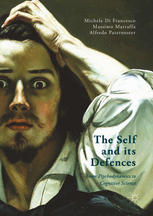

Most ebook files are in PDF format, so you can easily read them using various software such as Foxit Reader or directly on the Google Chrome browser.
Some ebook files are released by publishers in other formats such as .awz, .mobi, .epub, .fb2, etc. You may need to install specific software to read these formats on mobile/PC, such as Calibre.
Please read the tutorial at this link. https://ebooknice.com/page/post?id=faq
We offer FREE conversion to the popular formats you request; however, this may take some time. Therefore, right after payment, please email us, and we will try to provide the service as quickly as possible.
For some exceptional file formats or broken links (if any), please refrain from opening any disputes. Instead, email us first, and we will try to assist within a maximum of 6 hours.
EbookNice Team

Status:
Available5.0
19 reviewsThis book presents a theory of the self whose core principle is that the consciousness of the self is a process of self-representing that runs throughout our life. This process aims primarily at defending the self-conscious subject against the threat of its metaphysical inconsistence. In other words, the self is essentially a repertoire of psychological manoeuvres whose outcome is self-representation aimed at coping with the fundamental fragility of the human subject. This picture of the self differs from both the idealist and the eliminative approaches widely represented in contemporary discussion. Against the idealist approach, this book contends that rather than the self being primitive and logically prior, it is the result of a process of construction that originates in subpersonal unconscious processes. On the other hand, it also rejects the anti-realistic, eliminative argument that, from the non-primary, derivative nature of the self, infers its status as an illusory by-product of real neurobiological events, devoid of any explanatory role.